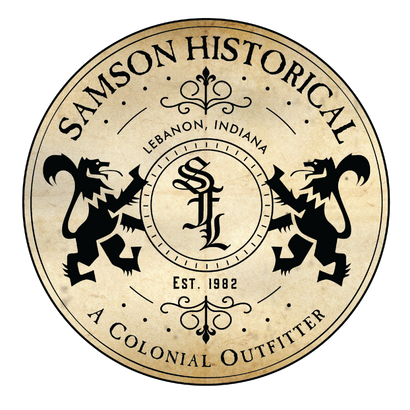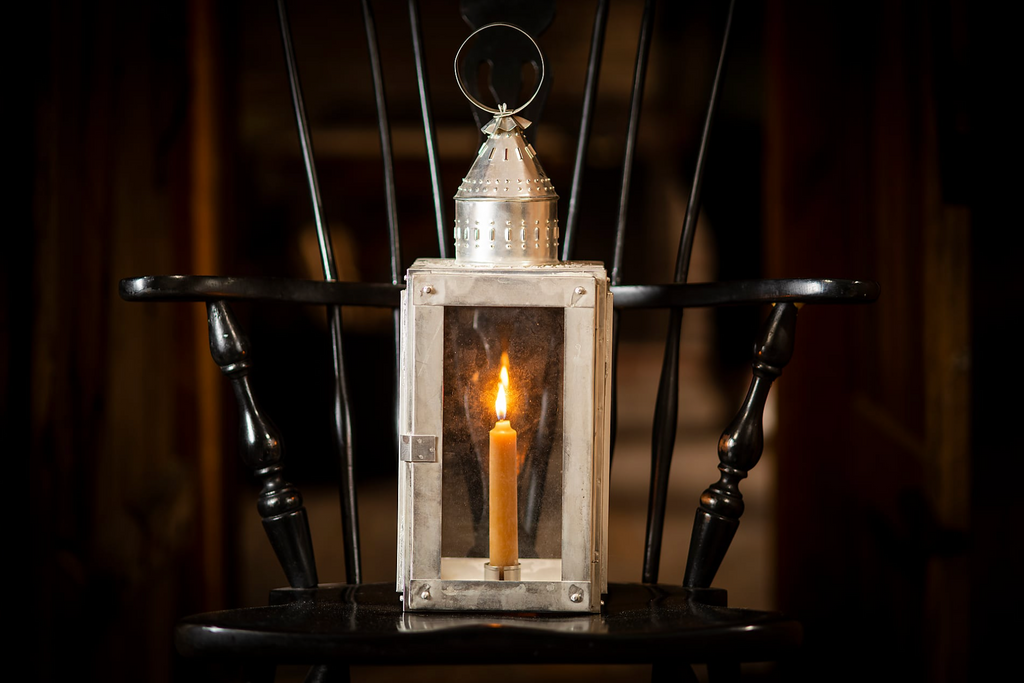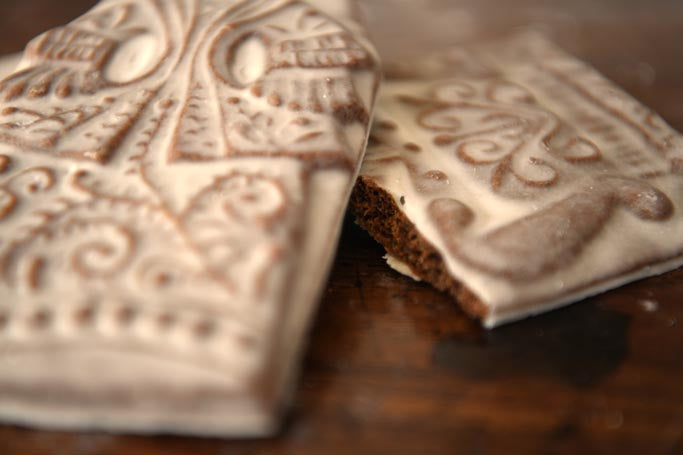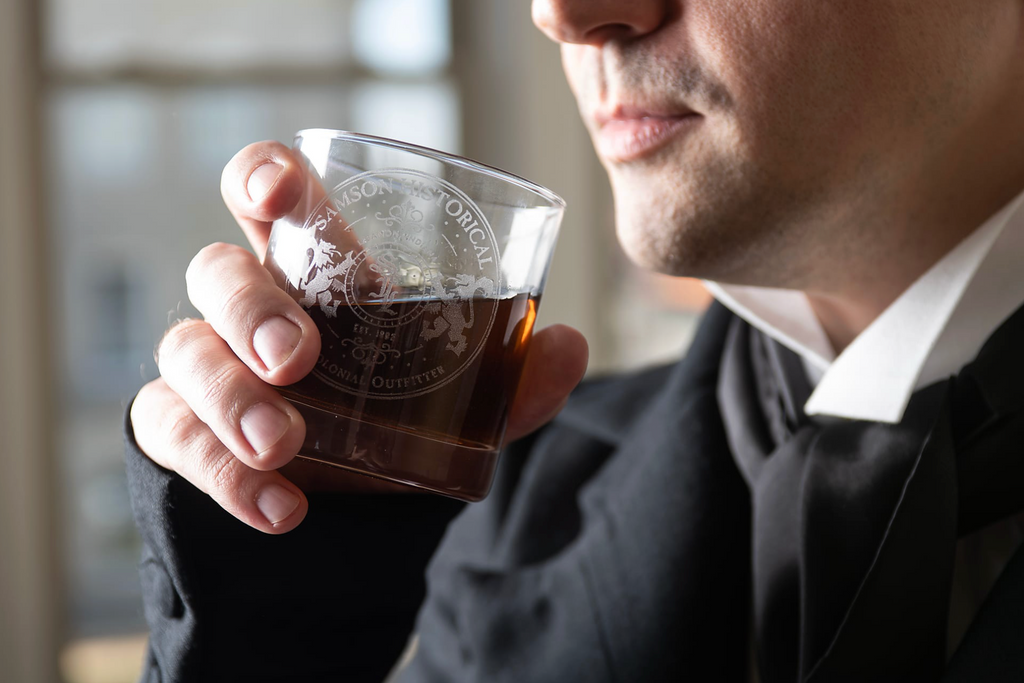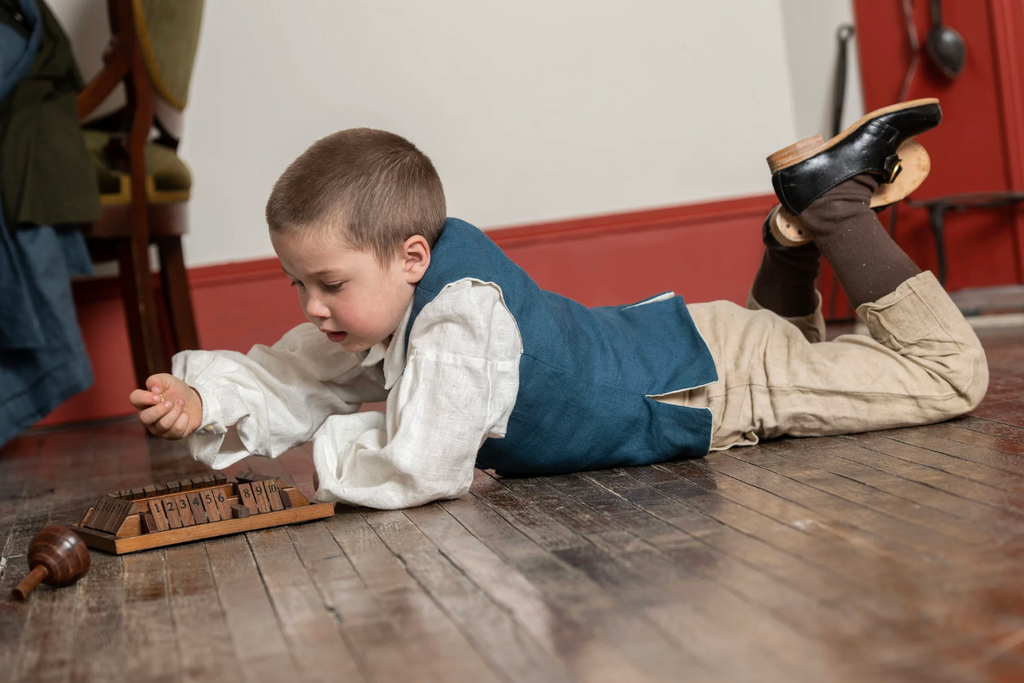Men’s Clothing
Women’s Clothing
Children's Clothing
Let's Start A Riot: A Brief History Of The Boston Tea Party
by Abbie Samson 19 min read

By: Trey Hill
"The people finding all their endeavors for the purpose thus frustrated, dissolved, the meeting, which had consisted by common estimation of at least seven thousand men, many of whom had come from towns at the distance of twenty miles. In less than four hours every chest of tea onboard three ships which had by this time arrived, three hundred and forty-two chests, or rather the contents of them, was thrown into the sea, without the least injury to the vessels or any other property." Samuel Adams
On the night of December 16, 1773, a group of very frustrated, angry, and dissatisfied Bostonians stormed Griffin’s Wharf on the Southeast Side of Boston. Boarding two means of transport, Dartmouth and Eleanor and the brig Beaver, that sat fully loaded with East India Company Tea. Dozens of citizens dressed as “Mohawk Indians” rowed from shore, stormed the vessel’s holds, and began tossing 92,616 pounds of tea into the Harbor. The evening became known as the Boston Tea Party and was a symbolic act of defiance in response to almost a decade’s worth of abuses against the American Colonies.
The abuses started at the closing of the French and Indian war, though victorious, the British Crown was deeply in debt. The British Parliament needed to raise funds to clear their war debt, a war that largely was fought in the North American Colonies, by the citizens who lived within them. It was largely colonists' land that was seized, their homes destroyed, and their lives uprooted by the constant conflict during the seven long years of war. When it came time for Parliament to levy taxes to fund the deficit, representatives from Scotland, Wales, and England were hesitant to raise the funds on the home island, as it was not their homes the Crown defended. Parliament faced little opposition on the home island, to the idea of making the colonists fund the deficit for “their” war. The colonists had no representatives within the British government, and thus no recourse to dispute Parliamentary levies; the measures to tax goods necessary to the colony’s existence passed with little opposition. The first act (summarized below) prevented the trade of goods to the colonies from any country other than Great Britain, ensuring that British tariffs were paid on all goods coming into and out of the country. Taxing all British goods, outlawing many foreign goods (except French wine), and limiting trade to the home island; Parliament was attempting to ensure the colonies' reliance upon the home island.
“... An act for the better securing and encouraging the trade of his Majesties’ sugar colonies in America; for applying the produce of such duties, and of the duties to arise by virtue of the said act, towards defraying the expenses of defending, protecting, and securing the said colonies and plantations... and for altering and disallowing several drawbacks on exports from this kingdom, and more effectually preventing the clandestine conveyance of goods to and from the said colonies and plantation, and improving and securing the trade between the same and Great Britain.Whereas it is expedient that new provisions and regulations should be established for improving the revenue of this kingdom, and for extending and securing the navigation and commerce between Great Britain and your Majesty’s dominions in America...for and upon all-white or
clayed sugars of the produce or manufacture of any colony or plantation in America, not under the dominion of his Majesty, his heirs and successors; for and upon indigo, and coffee of foreign produce or manufacture; for and upon wines (except French wine;) for and upon all wrought silks, bengals, and stuffs, mixed with silk or herbs of the manufacture of Persia, China, or East India, and all calico painted, dyed, printed, or stained there; and for and upon all foreign linen cloth called Cambrick and French Lawns, which shall be imported or brought into any colony or plantation in America.”
clayed sugars of the produce or manufacture of any colony or plantation in America, not under the dominion of his Majesty, his heirs and successors; for and upon indigo, and coffee of foreign produce or manufacture; for and upon wines (except French wine;) for and upon all wrought silks, bengals, and stuffs, mixed with silk or herbs of the manufacture of Persia, China, or East India, and all calico painted, dyed, printed, or stained there; and for and upon all foreign linen cloth called Cambrick and French Lawns, which shall be imported or brought into any colony or plantation in America.”
Punishment for violation of the Sugar Act was dictated by an Admiralty court in Novia Scotia, a court that was awarded 5% of the confiscated cargo as compensation, providing a strong financial incentive to find a defendant guilty. Traveling to the court was costly, there was little hope of mounting a successful defense (as the court was stacked against your favor), effectively removing colonists' right to a fair and just trial within your locality. Justifiably, the Sugar act raised outrage amongst the merchants and citizens of the New World, already angered by increases in taxation without representation. To combat the levy, colonists increased their illicit trade in taxed goods with other countries and increased efforts to manufacture these trade goods within the colonies themselves. Which in turn resulted in a loss of revenue for the Crown and thus further increases in levies. Many colonists were outraged at the purpose of the tax and that it might set a precedent moving forward, as exemplified below.
“use your power and influence in maintaining the invaluable Rights and Privileges of the Province...For if our Trade may be taxed why not our Lands? Why not the produce of our Lands, and every Thing we possess or make use of?....If Taxes are laid upon us in any shape without ever having a Legal Representative where they are laid, are we not reduced from the Character of Free Subjects to the miserable state of tributary Slaves...” Boston Towne Meeting letter to Massachusetts General Court. May 15, 1764

Still ever more crippled by further conflict in the Americas, this time on the frontier in the Ohio Country during Pontiac’s Rebellion, the Crown was required to raise taxes further, introducing the Stamp Act in 1765. Up until the Sugar Act and the Stamp Act, the largest portion of the tax burden for the Seven Year’s War and the quartering, training, and supply of both local and British forces in the New World had fallen on the shoulders of Britons living within Great Britain. Those citizens living in the Old World were alarmed that they should have to pay the levies on a war in a different continent.
“WHEREAS by an act made in the last session of parliament, several duties were granted, continued, and appropriated, towards defraying the expenses of defending, protecting, and securing, the British colonies and plantations in America: and whereas it is just and necessary, that provision be made for raising a further revenue within your Majesty’s dominions in America, towards defraying the said expenses: we, your Majesty’s most dutiful and loyal subjects, theCommons of Great Britain in Parliament assembled, have therefore resolved to give and grant unto your Majesty the several rates and duties hereinafter mentioned... For every skin or piece of vellum or parchment or sheet of piece of paper, on which shall be engrossed, written, or printed an license, appointment or admission of any counsellor, solicitor, attorney, advocate, proctor, practice in any court, or any notary within the said colonies and plantations... any bill of lading, which shall be signed for any kind of goods, wares, or merchandize, to be exported from within the colonies and plantations... for any license for retailing of spirituous liquor, within the said colonies and plantations... for any notarial act, bond, deed, letter of attorney, procuration, mortgage, release or other obligatory instrument not herein before charged... and for every pack of cards or dice sold within the colonies...for every paper commonly called a pamphlet, and upon every newspaper containing public news, intelligence, or occurrences which shall be made public within any of the said colonies and plantations, and for and upon such advertisements...for every almanack or calendar that should be printed within the said coloniesor plantations.” Excerpt from Stamp Act March 1765
In addition to taxing any sugar, molasses, and foreign trade the house of Commons dictated severe taxes on most items necessary for business, pleasure, and news distribution.The Stamp Act inhibited all acts of business and ensured that the Crown had some influence in every aspect of Colonial life, even in goods manufactured within the colonies.
“We have called this a burdensome tax, because the duties are so numerous and so high, and the embarrassments to business in this infant, sparsely settled country so great, that it would be totally impossible for the people to subsist under it, if we had no controversy at all about the right and authority of imposing it...We further apprehend this tax to be unconstitutional. We have always understood it to be a grand and fundamental principle of the constitution that no freeman should be subject to any tax to which he has not given his own consent, in person or by proxy.”John Adams Braintree Resolutions 1765
The Stamp Act sparked a movement in America, a movement toward unification, organization, self-governance, and civil disobedience. Riots erupted all over the 13 colonies, stamp burnings were common, as were the intimidation of the local stamp collectors. One of the groups most famous for tarring and feathering local stamp collectors, were the Sons of Liberty, a group that formed in the summer of 1765 as a direct response to the Stamp Act.
The Sons of Liberty were a group of like-minded individuals that met in secret under “the liberty tree” on Hanover Street. Backed by the Loyal Nine, a group of anti-British Merchants in Boston, the Sons of Liberty organized riots, directed protests of the Stamp Act, actively resisted the collection of the duties by the stamp collectors, were famous for burning copies of the document in the streets of Boston, and for tarring and feathering those in favor of the act. One such act of disobedience resulted in the sacking of the home of Lieutenant Governor of Massachusetts Thomas Hutchinson, with rioters looting tens of thousands of pounds worth of items. After this wildly publicized night, chapters quickly spread throughout the colonies and existed in every major city. Disrupting collection of duties for the Stamp Act so effectively, that the Act was eventually repealed.
Building upon the uproar caused by the Stamp Act, the colonies hosted a Stamp Act Congress in October of 1765. Housed in Federal Hall in New York City, 27 representatives from 9 different colonies met to create 13 resolutions entitled “Declaration of Rights and Grievances”. The Grievances were meant to explain the position of the colonists regarding the Stamp Act and the preceding Sugar Act. For fear of legal reprisals, none of the attendees of the conference
signed the document that was sent to the King. This document echoed James Otis Jr.’s idea of“no taxation without representation.”
signed the document that was sent to the King. This document echoed James Otis Jr.’s idea of“no taxation without representation.”
“ I. That His Majesty’s subjects in these colonies, owe the same allegiance to the Crown of Great-Britain, that is owing from his subjects born within the realm, and all due subordination to that august body the Parliament of Great Britain.
II. That His Majesty’s liege subjects in these colonies, are entitled to all the inherent rights and liberties of his natural-born subjects within the kingdom of Great-Britain.
III. That it is inseparably essential to the freedom of a people, and the undoubted right of Englishmen, that no taxes be imposed on them, but with their own consent, given personally, orby their representatives.
IV. That the people of these colonies are not, and from their local circumstances cannot be, represented in the House of Commons in Great-Britain.
V. That the only representatives of the people of these colonies, are persons chosen therein by themselves, and that no taxes ever have been, or can be constitutionally imposed on them, but by their respective legislatures.
VI. That all supplies to the Crown, being free gifts of the people, it is unreasonable and inconsistent with the principles and spirit of the British Constitution, for the people of Great-Britain to grant to His Majesty the property of the colonists.
VII.That trial by jury is the inherent and invaluable right of every British subject in these colonies.
VIII. That the late Act of Parliament, entitled, An Act for granting and applying certain Stamp Duties, and other Duties, in the British colonies and plantations in America, etc., by imposing taxes on the inhabitants of these colonies, and the said Act, and several other Acts, by extending the jurisdiction of the courts of Admiralty beyond its ancient limits, have a manifest tendency to subvert the rights and liberties of the colonists.
IX. That the duties imposed by several late Acts of Parliament, from the peculiar circumstances of these colonies, will be extremely burthensome and grievous; and from the scarcity of specie, the payment of them absolutely impracticable.
X. That as the profits of the trade of these colonies ultimately center in Great-Britain, to pay for the manufactures which they are obliged to take from thence, they eventually contribute very largely to all supplies granted there to the Crown.
XI. That the restrictions imposed by several late Acts of Parliament, on the trade of these colonies, will render them unable to purchase the manufactures of Great-Britain.
XII. That the increase, prosperity, and happiness of these colonies, depend on the full and free enjoyment of their rights and liberties, and an intercourse with Great-Britain mutually affectionate and advantageous.
XIII. That it is the right of the British subjects in these colonies, to petition the King, Or either House of Parliament. Lastly, That it is the indispensable duty of these colonies, to the best of sovereigns, to the mother country, and to themselves, to endeavor by a loyal and dutiful address to his Majesty, and humble applications to both Houses of Parliament, to procure the repeal of the Act for granting and applying certain stamp duties, of all clauses of any other Acts of Parliament, whereby the jurisdiction of the Admiralty is extended as aforesaid, and of the other late Acts for the restriction of American commerce.”
In response to the increasing civil disobedience in the colonies, Parliament announced that the Stamp Act would be repealed. The Stamp Act was a disastrous failure. Colonists in the New World rioted, burned, looted, and coerced the stamp collectors to resign their posts, for fear of reprisals and violence. In the Old World, British merchants were incredibly dissatisfied that their goods were no longer being purchased en masse in the New World. British Shipping, mercantile, and export companies lost extreme amounts of money due to the boycotts and smuggling operations organized by the Sons of Liberty. Despite the uproar caused by the Stamp Act and in direct response to the letter sent by the Stamp Act Congress, Parliament passed the Declaratory Act in 1766 as states:
“An act for the better securing the dependency of his majesty's dominions in America upon the crown and parliament of Great Britain. Whereas several of the houses of representatives in his Majesty's colonies and plantations in America, have of late against law, claimed to themselves, or to the general assemblies of the same, the sole and exclusive right of imposing duties and taxes upon his majesty's subjects in the said colonies and plantations; and have in pursuance of such claim, passed certain votes, resolutions, and orders derogatory to the legislative authority of parliament, and inconsistent with the dependency Of the said colonies and plantations upon the crown of Great Britain: may it therefore please your most excellent Majesty, that it may be declared; and be it declared by the King's most excellent majesty, by and with the advice and consent of the lords spiritual and temporal, and commons, in this present parliament assembled, and by the authority of the same, That the said colonies and plantations in America have been, are, and of right ought to be, subordinate unto, and dependent upon the imperial crown and parliament of Great Britain; and that the King's majesty, by and with the advice and consent of the lords spiritual and temporal, and commons of Great Britain, in parliament assembled, had. bath, and of right ought to have, full power and authority to make laws and statutes of sufficient force and validity to bind the colonies and people of America, subjects of the crown of Great Britain, in all cases whatsoever, II. And be it further declared and enacted by the authority aforesaid, That all resolutions, votes, orders, and proceedings, in any of the said colonies or plantations, whereby the power and authority of the parliament of Great Britain, to make laws and statutes as aforesaid, is denied, or drawn into question, arc, and are hereby declared to be, utterly null and void to all in purposes whatsoever.”
By 1766 the British Government had grown quite tired of its inability to collect taxes and enforce its rule on the colonies. In incredibly direct terms, the Declaratory Act stated that the British Government is well within its rights to force any tax, levy, or treaty to ensure the reliance of the colonies on the British Government. Forcing any governing body, legitimate or otherwise, to defer to the interests of the crown in all matters. Disbarring as illegal, any actions those self-governing bodies enacted, in the past, present, or future. With only one minor attempt at organized self-government, the Stamp Act Congress, most colonists saw the repealing of the Stamp Act a political victory and were happy to leave control of the colonies in the hands of the British.
“January 15, 1766—I spent the evening with the Sons of Liberty at their own appointment, in Hanover Square, near the “Tree of Liberty” ... I was very cordially and respectfully treated by all present. We had punch, wine, pipes and tobacco, biscuit, and cheese, etc. They chose a committee to prepare for grand rejoicing upon the arrival of the news of the repeal of the stamp act.” John Adams
Feelings of comfort and victory would soon change with the release of the Townshend act in 1767. Much longer and much more inclusive than its previous Acts, Parliament drastically increased its power and control over the colonies. Taxing all imports of tea, paper, glass, and lead. Significantly more alarming, especially to the Sons of Liberty, was the way the Townshend Act would be enforced. Drawing largely upon the force of 10,000 soldiers stationed and quartered in private residences dictated by the Quartering Act of 1765, was the ability for agents of the crown to search any structure with or without a warrant, to confiscate goods within. These warrantless searches prompted corruption and fostered even more violence. The Townshend Act states:
“to authorize and empower the officers of his Majesty’s customs to enter and go into any house, warehouse, shop, cellar, or other place, in the British colonies or plantations in America, to search for and seize prohibited and un-customed goods, in the manner directed by the said recited acts, shall and my be granted by the said superior or supreme court of justice having jurisdiction within such colony or plantation.” Excerpt from Townshend Acts 1767.
The famous smuggler and wealthy businessman, John Hancock, saw several of his ships seized and searched resulting in a months-long, incredibly public trial. Eventually, the charges against John Hancock were dismissed but not before one of Hancock’s ships Liberty was seized by the British. The customs agents then used the Liberty as a vessel to enforce trade regulations until a group of angry colonists in Rhode Island took the vessel by force and burnt it to the waterline. The seizure of the Liberty ignited significant riots in Boston, paired with the arrival of the 50-gun Romney. The Bostonians quickly found themselves in a position where they were stripped of liberty, under constant threat of cannonading, and their homes could be searched at any time. Further increasing the tension, the British decided to send a garrison of four regiments (approx. 2,400 soldiers) of soldiers to occupy Boston forcing the inhabitants to house, feed, and care for the soldiers out of their own pocket.
“’ Where law ends, (says Mr. Locke) Tyranny begins, if the law be transgressed to another’s harm’: No one I believe will deny the truth of the observation, and therefore I gain appeal to common sense, whether the act which provides for the quartering and billeting of the King’s troops, was not transgressed when the barracks at the Castle which are sufficient to contain more than the whole number of soldiers now in this town, were absolutely refused: this I presume cannot be contested. Should any one say that the law is not transgressed to another’s harm, the assertion I dare say would contradict the feelings of every sober householder in the town. No man can pretend to say that the peace and good order of the community is so secure with soldiers quartered in the body of a city as without them. Besides, where military power is introduced, military maxims are propagated and adopted, which are inconsistent with and must soon eradicate very idea of civil government. Do we not already find some persons weak enough to believe, that an officer is obliged to obey the orders of his superior, though it be eve against the law! And let anyone consider whether this doctrine does not directly lead even to the setting up that superior officer, whoever he may be, as a tyrant. It is moreover to be observed that military government and civil, are so different from each other, if not opposite, that they cannot long subsist together. Soldiers are not governed properly by the laws of their country, but by a law made for them only: This may in time make them look upon themselves as a body of men different from the rest of the people and as they and they only have the sword in their hands, they may sooner or later begin to look upon themselves as the lords and not the servants of the people; instead of enforcing the execution of law, which by the way is far from being the original intent of soldiers, they may refuse to obey it themselves: Nay, they may even make laws for themselves, and enforce them by the power of the sword! Such instances are not uncommon in history, and they always will happen when troops are put under the direction of an ambitious or covetous governor and if there is any reason for fear that this may be the consequence of a transgression of the act of Parliament, it is a transgression not to the harm of individuals only but to the general public” Samuel Adams letter to Boston Gazette October 17, 1768
In direct response to the military occupation of the city, the Sons of Liberty began to wield their considerable influence over the area. They organized further and more intensive boycotts of all British imported and taxed goods, encouraged the citizens to continue smuggling goods, and most importantly invested into businesses that produced boycotted goods within the colonies. Organized disobedience was often met with organized resistance, by the occupying forces in Boston. During most of 1769, Boston was a simmering pot, just waiting for the right time to boil over. By 1770, Boston would turn a new leaf of violence and boil over.
In February of 1770, teenagers throwing stones at the home of a British Customs agent were shot at by the customs agent. A musket ball struck Christopher Sider, mortally wounding him, while the shooter, British Customs Official Ebenezer Richardson, was offered a royal pardon for his act. The war for the revolution would claim its first martyr and would soon have others to join the cause. On March 5th, 1770, the situation turned from dire, into a massacre. A teenager approached a British soldier guarding the steps of the Customs House and the two began to discuss a payment the soldier owed to the teenagers’ establishment. Things quickly got heated resulting in the soldier striking the teenager across the head with the butt of his musket, prompting the nearby crowd to launch rocks, snowballs, and threats towards the soldier. Acting in defense of their beleaguered comrade, a squad of British soldiers took up a defensive position on the steps of the Customs House. A soldier was knocked down by a snowball and in the act of standing up fired his musket, hitting his own commander. Amid the confusion of the mob shouting and the musket shot, several other British Soldiers fired into the mob, killing, or mortally wounding five people.
The British soldiers were arrested, tried, and found not guilty, thanks in large part to a spectacular legal defense mounted by future president John Adams. As a result of the trial, it was negotiated over several months that the British troops would be removed from the town of Boston to prevent further bloodshed being incited by either side. This measure managed to hold off further death, for at least a while.
By 1773, the Sons of Liberty organization had become so successful it became augmented in political groups. These political groups formed networks of correspondence. Each town would have several citizens who would consult together, write down their thoughts on new law and how it would affect them, then these thoughts would be copied and sent out to similar groups in other towns. In effect, creating an interconnected network of local, regional, and colony-level leadership. All parties involved would be appraised of each other’s opinions and thoughts on law, making coordination of response significantly easier. Unifying dissent against the British Crown and creating what eventually became the political bonds necessary for the First Continental Congress in 1774.
In a further attempt to garner funds from the New World, Parliament instituted the Tea Act of 1773. The Act imposed no new taxes on the colonies. It was designed to offload millions of pounds of tea held by the East India Company. The East India Company was able to sell tea directly to the colonies, bypassing the Townshend Act, undercutting local suppliers, foreign suppliers, and local merchants who all had to pay the duty on the tax. This angered many citizens resulting in the tea ships in New York Harbor being sent back to England. The city of Philadelphia would not allow the duty-free tea ships to dock and once the tea ships arrived in Charlestown, South Carolina the tea was never offloaded, left to rot in the harbor. However, in Boston, Massachusetts Governor Hutchinson allowed the ships into the harbor, docking at Griffin’s Wharf.
Ever ready to seize an opportunity, the Sons of Liberty coerced the naval officer in charge of securing Boston Harbor to allow the first tea ship Dartmouth to dock at Griffin’s wharf. The Sons of Liberty would guard the ship ensuring none of the dreaded tea was offloaded and sold ashore. As an added benefit once docked the Dartmouth would be out of the protection of patrolling British Navy vessels' guns. Shortly thereafter, the Dartmouth was joined by the transport Eleanor, and the brig Beaver. All three vessels docked at the wharf were guarded by the Sons of Liberty.
On December 16, 1773, five thousand people headed into Boston to see how the drama at the docks would play out and to hear speeches by Samuel Adams, John Hancock, and Josiah Quincy. Unable to offload cargo or leave the harbor without a pass, the three ships were a prime target with the added benefit of having been secured by the Sons of Liberty. The meeting quickly grew to 7,000 people spilling over into the streets. Once in the streets, the already accustomed to rioting Bostonians quickly worked themselves into a fever pitch. Suddenly, shouts of “the Mohawks are coming” rang out. Over one hundred men dressed as Native Americans, screaming at the top of their lungs, began rushing from the meeting house towards the docks. The men had already planned intricate face coverings and created a coded language so if overheard no one could decipher the group's next move. Donning hatches, the men boarded the three tea ships. Each member of the group knew their part, they moved private cargo out of the way, harmed no sailors aboard ships, and damaged the vessels in noway during the whole ordeal. Only the cargo of the tea was destroyed when it was tossed overboard into Boston Harbor. They tossed so much tea into the low tide that it started to
accumulate over the waterline, forcing the parties to clear out the accumulated tea before tossing more into the Harbor to ensure all was destroyed.
accumulate over the waterline, forcing the parties to clear out the accumulated tea before tossing more into the Harbor to ensure all was destroyed.
As the Tea Partiers set about their tasks the thousands gathered at the docks watched in silence as they meticulously worked. Among those with a view to the destruction, was the British 54 gun warship Captain and a garrison of soldiers housed in the castle (a name for the fortification that guarded the harbor). Neither the British Army nor the Navy could intervene without express orders from the governor (a result of the Boston Massacre fallout). The Governor was away at his country home as was the lieutenant Governor, effectively the only political power active that night in Boston were the Sons of Liberty. This allowed an unparalleled and unobstructed view of the event from all sides of the political spectrum. All told, after three hours 342 chests of tea were expelled into the harbor, destroying three shiploads of tea. An act that was well coordinated, well planned, and incredibly efficient. A symbolic gesture that marked the passing of nearly ten years’ worth of insulting, demeaning, and diminutive tax acts and personal rights affronts forced on the colonies by the British Parliament. The systematic and organized destruction of the tea was a symbolic gesture signifying the beginning of the end of British rule over America and signaling the start of the movement that would become the American Revolution.
“This is the most magnificent movement of all. There is a dignity, a majesty, a sublimity, in this last effort of the patriots, that I greatly admire. The people should never rise, without doing something to be remembered—something notable and striking. This destruction of the teas is so bold, so daring, so firm, intrepid and inflexible, and it must have so important consequences, and so lasting, that I can’t but consider it as an Epocha in History.” Diary entry John Adams
Leave a comment
Subscribe
Sign up to get the latest on sales, new releases and more …
